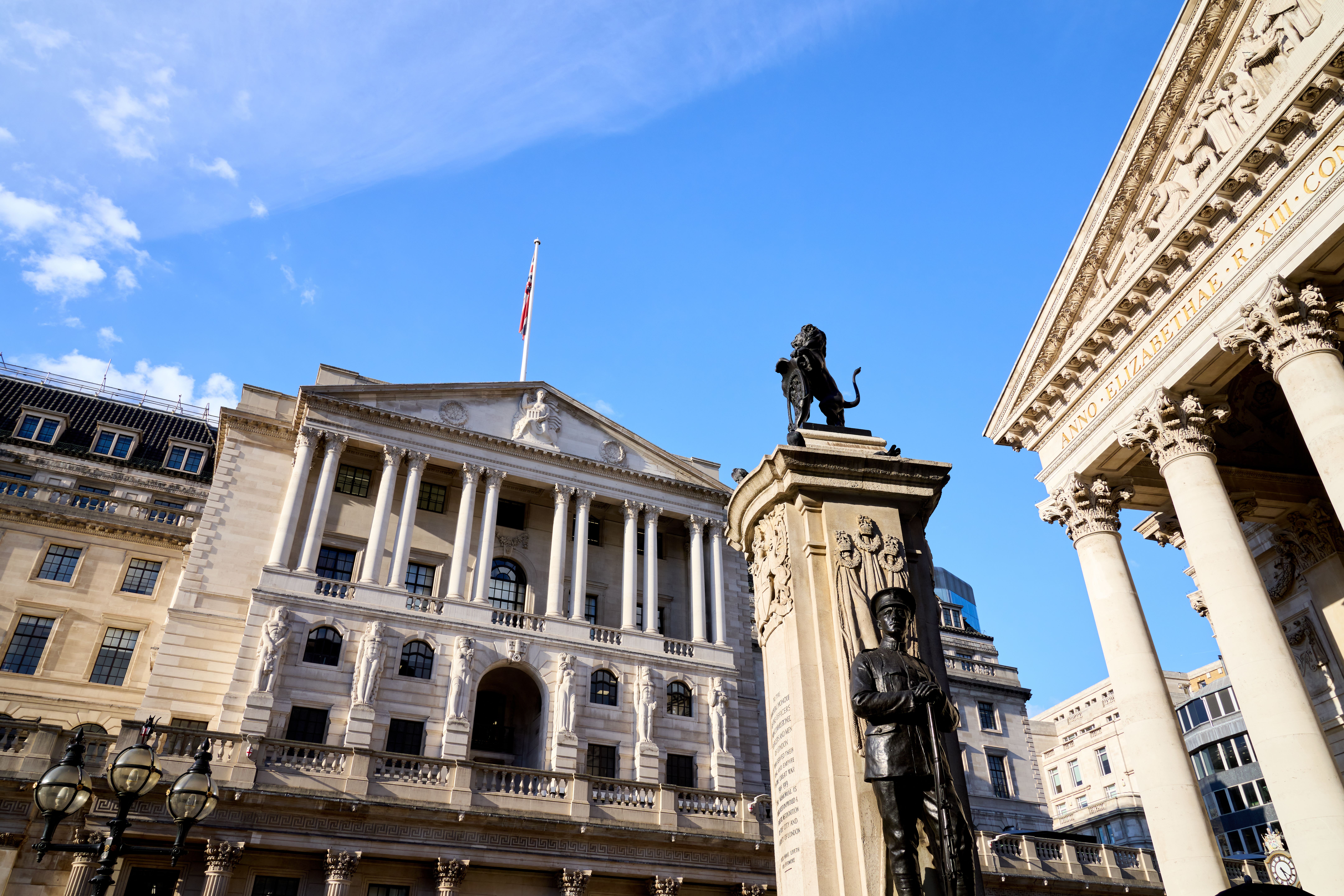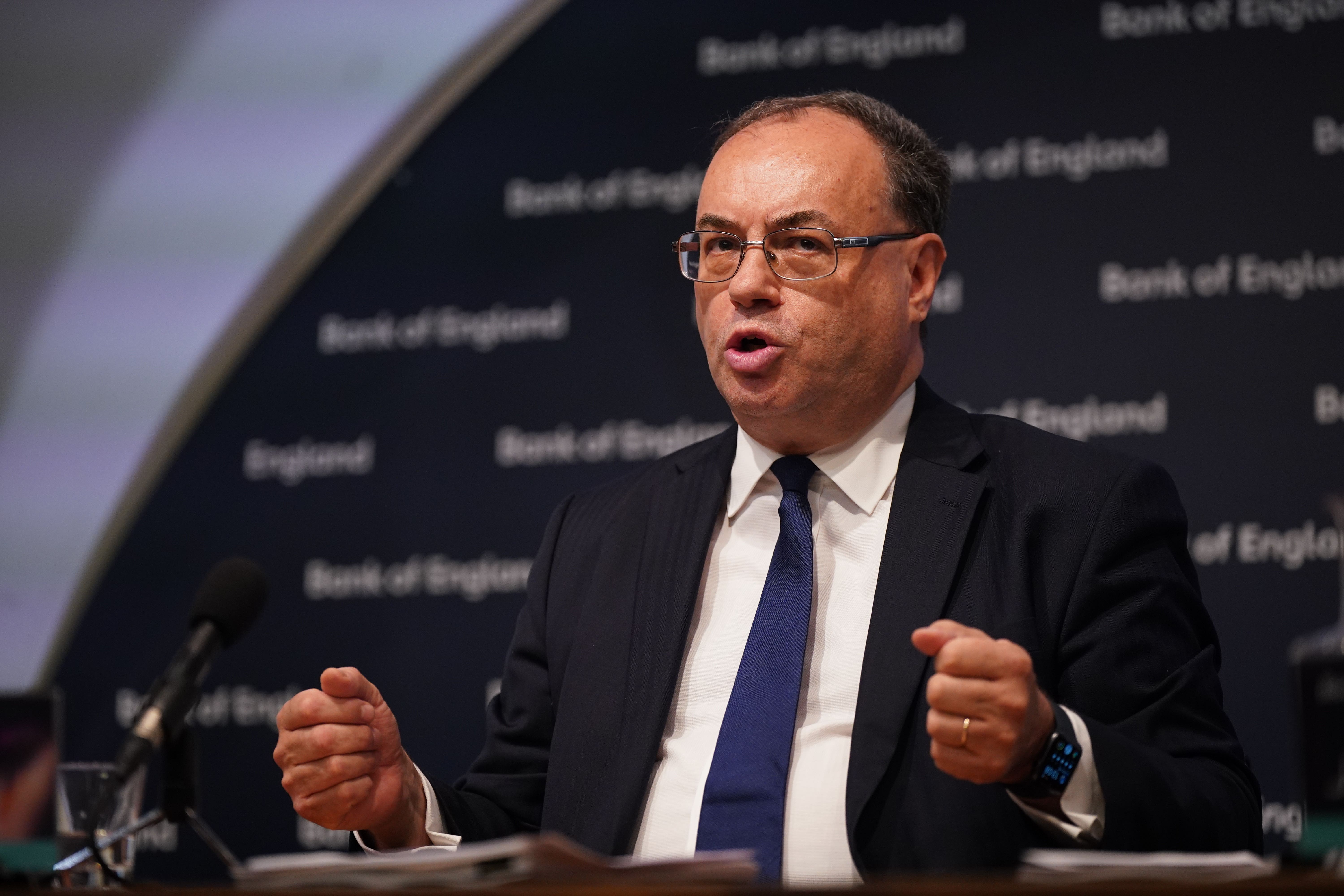Bank of England warns next interest rate hike could be higher than expected
‘Stronger response’ needed to tackle inflation, says Andrew Bailey
Your support helps us to tell the story
From reproductive rights to climate change to Big Tech, The Independent is on the ground when the story is developing. Whether it's investigating the financials of Elon Musk's pro-Trump PAC or producing our latest documentary, 'The A Word', which shines a light on the American women fighting for reproductive rights, we know how important it is to parse out the facts from the messaging.
At such a critical moment in US history, we need reporters on the ground. Your donation allows us to keep sending journalists to speak to both sides of the story.
The Independent is trusted by Americans across the entire political spectrum. And unlike many other quality news outlets, we choose not to lock Americans out of our reporting and analysis with paywalls. We believe quality journalism should be available to everyone, paid for by those who can afford it.
Your support makes all the difference.Interest rates might have to be raised higher than initially expected to tackle inflation, the governor of the Bank of England has warned.
Andrew Bailey said the bank “will not hesitate to raise interest rates to curb inflation” and revealed that he had already spoken to new chancellor Jeremy Hunt, saying the pair had an “immediate meeting of minds”.
“As things stand today, my best guess is that inflationary pressures will require a stronger response than we perhaps thought in August,” he told an event in Washington on Saturday.
The BoE is due to announce its next decision on interest rates on 3 November, and many investors think it will either raise them from their current level of 2.25 per cent to 3 per cent or possibly 3.25 per cent, both of which would be much bigger moves than usual.
The BoE previously predicted the rate of inflation would peak at 11 per cent in October.
In his speech, Mr Bailey referenced the market turmoil that followed the government’s mini-Budget, adding: “UK financial markets have experienced some violent moves in the last few weeks, particularly at the long end of the government debt market.
“This has put the spotlight on flaws in the strategy and structure of one important part of a lot of pension funds. The Bank of England has had to intervene to deal with a threat to the stability of the financial system, our other core objective.

“There may appear to be a tension here between tightening monetary policy as we must, including so-called quantitative tightening, and buying government debt to ease a critical threat to financial stability.
“This explains why we have been clear that our interventions on the latter point are strictly temporary and have been designed to do the minimum possible or necessary.”
In an extraordinary series of interviews just hours after taking up the chancellorship, Mr Hunt said that taxes would rise and warned of “difficult” spending cuts ahead.
He also refused to commit to the prime minister’s pledged 1p cut in income tax and her promise to raise defence spending to 3 per cent of GDP as he admitted that “mistakes” were made in last month’s mini-Budget.

He said he “very much” hoped the government could keep the planned 1p cut to income tax but said he would not make a decision before he had looked at everything.
In relation to defence spending, he said any increase in spending would depend on the state of the economy.
He refused to go into specifics on taxes or to commit to benefits rising in line with inflation, although he said a number of times that this was a “compassionate Conservative government”.
Mr Bailey’s comments come after the BoE confirmed the end of its emergency bond-buying scheme in a bid to protect pension funds. The BoE said that other measures would take over after 14 October “to ease liquidity pressures on LDIs [liability driven investments]”.
The Bank of England has struggled to reassure investors after unveiling yet more measures to calm markets rocked by the UK government’s recent tax-slashing budget.
“We think the rebalancing must be done and my message to the funds involved and all the firms involved managing those funds is: you've got three days left now,” Mr Bailey said prior to the intervention’s end.
“You've got to get this done,” he said at an appearance at the Institute of International Finance in Washington.
Join our commenting forum
Join thought-provoking conversations, follow other Independent readers and see their replies
0Comments